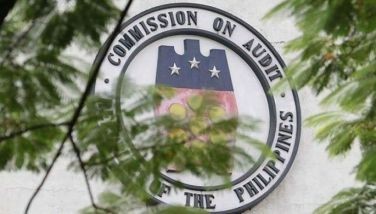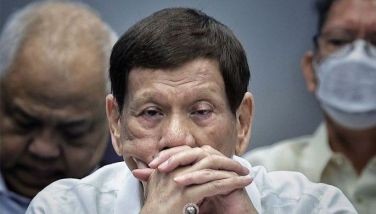President Marcos admin luring investments through overseas engagements, reforms
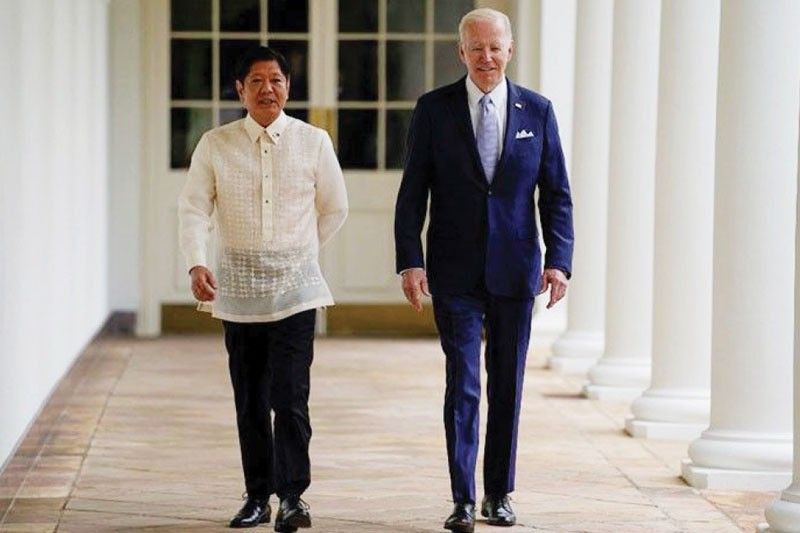
MANILA, Philippines — President Marcos’ critics continue to question the purpose of his foreign trips, with no less than his predecessor Rodrigo Duterte accusing him recently of engaging in leisure travels.
While he is not known to be a fiery politician, Marcos has his own way of responding to tirades against him, managing to remain composed while parrying attacks ranging from work-related accusations to downright personal diatribes.
During his visit to Berlin last March, Marcos was smiling while showing reporters a document containing his schedule to dispel claims that he is just taking a tour when he is overseas.
“This is my schedule for today. Where is the tour? There is none. My companions are here. You (members of the media) are with us. We don’t make pasyal (take tours),”the President said.
“Even in the places that I know where I’ve spent a lot of time (in), I was not able to visit because we’re here to do this.”
Marcos was referring to promoting the Philippines as an investment destination and meeting with political and business leaders to forge and strengthen partnerships, which have become staples of his overseas engagements.
While critics remain skeptical of the benefits of Marcos’ foreign trips — he has had 28 since assuming the presidency in 2022 — officials said the President’s visits to other countries have started to bear fruit.
According to the Department of Trade and Industry, some $19 billion worth of investments covering 65 projects that were pledged during Marcos’ overseas trips have been actualized or have started implementation as of last month. The actualized investments constituted 31 percent of the $61.3 billion worth of investments reaped from the President’s foreign trips, the agency added.
Special Assistant to the President on Investment and Economic Affairs Frederick Go said investors are interested in the Philippines
because of Marcos’ “successful pitch.”
“The Philippines is open for business and the world is now eagerly looking at us because of the President’s very successful pitch to the world,” Go told members of the Manila Overseas Press Club in Makati last month.
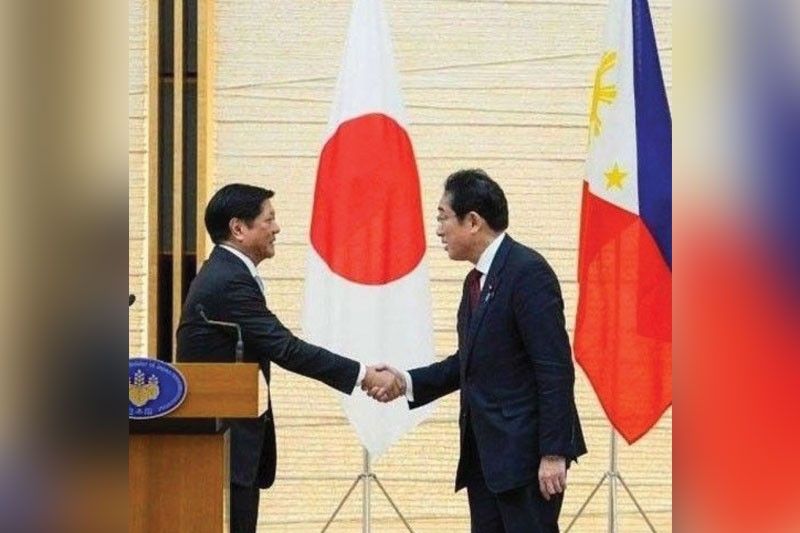
Enabling environment
However, the Marcos administration’s effort to persuade investors to come to the Philippines is not limited to the President’s overseas engagements.
Marcos and his officials have emphasized the need for an environment that would allow businesses to flourish so they can create more jobs and contribute to economic growth.
“Let me just emphasize that the job generation and job creation is actually the domain of the private sector. Government’s responsibility is to be able to create an enabling environment conducive to business,” Labor Secretary BienvenidoLaguesma said at a press briefing last July 9.
“So that means, that includes stable policies, proper planning for businesses and issues related to preparing our workforce,” he added.
Go said the Marcos administration has taken important steps to improve the ease of doing business and make the Philippines the “destination of choice” for investors.
“The Philippines today is primed more than ever to become a leading investment destination, by virtue of our responsive policies and purposeful reforms that foster a conducive environment for businesses to thrive,” the President’s investment and economic affairs assistant said.
Go said the policy environment for foreign direct investments (FDI) is the “most open and liberal” it has ever been, citing laws like the amendments to the Foreign Investment Act, Public Service Act, Retail Trade Liberalization Act and the Renewable Energy Act and the liberalization of key sectors like rail, air transport, shipping, roll roads and telecommunications.
Go, whose office synchronizes efforts to implement Marcos’ priorities and economic agenda, also highlighted the establishment of green lanes for strategic investments that expedite and automate the government registration process; the issuance of an executive order that streamlines the permitting process for the building of telecommunications and internet infrastructure; the passage of the Ease of Paying Taxes Law; the enactment of the new Public-Private Partnership Code that seeks to ensure high quality and cost-effective infrastructure projects; the implementation of measures to encourage listings and participation in capital markets; and the launching of a fully working and operational Philippine digital national ID.
He added that under the government’s ‘Build Better More’ program, there are 185 infrastructure projects with a total cost of about P9 trillion that are “primed and ready.”
“These projects span across the areas of power, physical connectivity, digitalization, healthcare, rural development and water resources,” Go said.
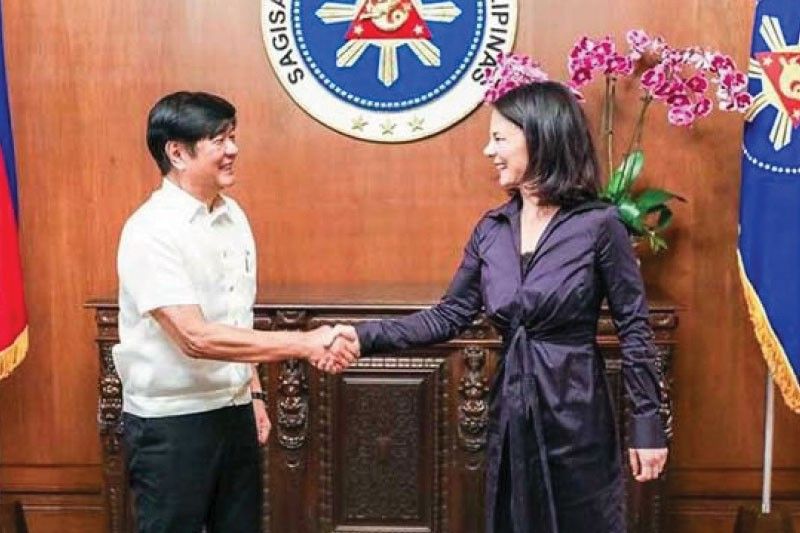
Challenges
Despite ongoing efforts to promote economic growth and encourage investments, challenges remain.
While the Philippine economy grew by 5.5 percent last year, it was slower than the 7.6 percent posted in 2022. FDI inflows to the Philippines decreased by 36.9 percent to net inflows of $556 million in April from $881 million net inflows in the same period last year.
Headline inflation slowed down to 3.7 percent in June from 3.9 percent in May but food inflation accelerated to 6.5 percent from 6.1 percent because of the higher prices of meat and vegetables.
Go said the Philippines is on track to achieve a 6.0 to 7.0 percent growth for the full year. He also expressed optimism that the administration’s reforms and policies would allow the country to lure more investments.
“Your very dynamic economic team is taking steps to rein in inflation, results of which you will see very soon,” Go added.
National Economic and Development Authority (NEDA) Secretary Arsenio Balisacan expressed confidence that Filipinos can look forward to better days ahead in terms of the prices of goods.
According to him, the food inflation in recent months was a result of a confluence of factors, including El Niño.
“El Niño is now over and now we are under La Niña. We hope that we don’t have the other extremes of typhoons and destructive floods,” Balisacan said in a recent press briefing.
The government, Balisacan explained, is also addressing the lack of logistics and cold storage systems in food production areas to resolve supply chain issues.
“We have in the last two years during this administration and even in the budget proposed for 2025, the increase in the budget of agriculture is very high compared to many other sectors. And the intention really is to get that productivity growth happening in our sector, so that we don’t have to import too much, we don’t have to be too dependent on imports,” Balisacan said.
“I think the last question is better days ahead? Yes, I am quite optimistic that we are moving in that direction,” the NEDA chief added.
- Latest
- Trending
















